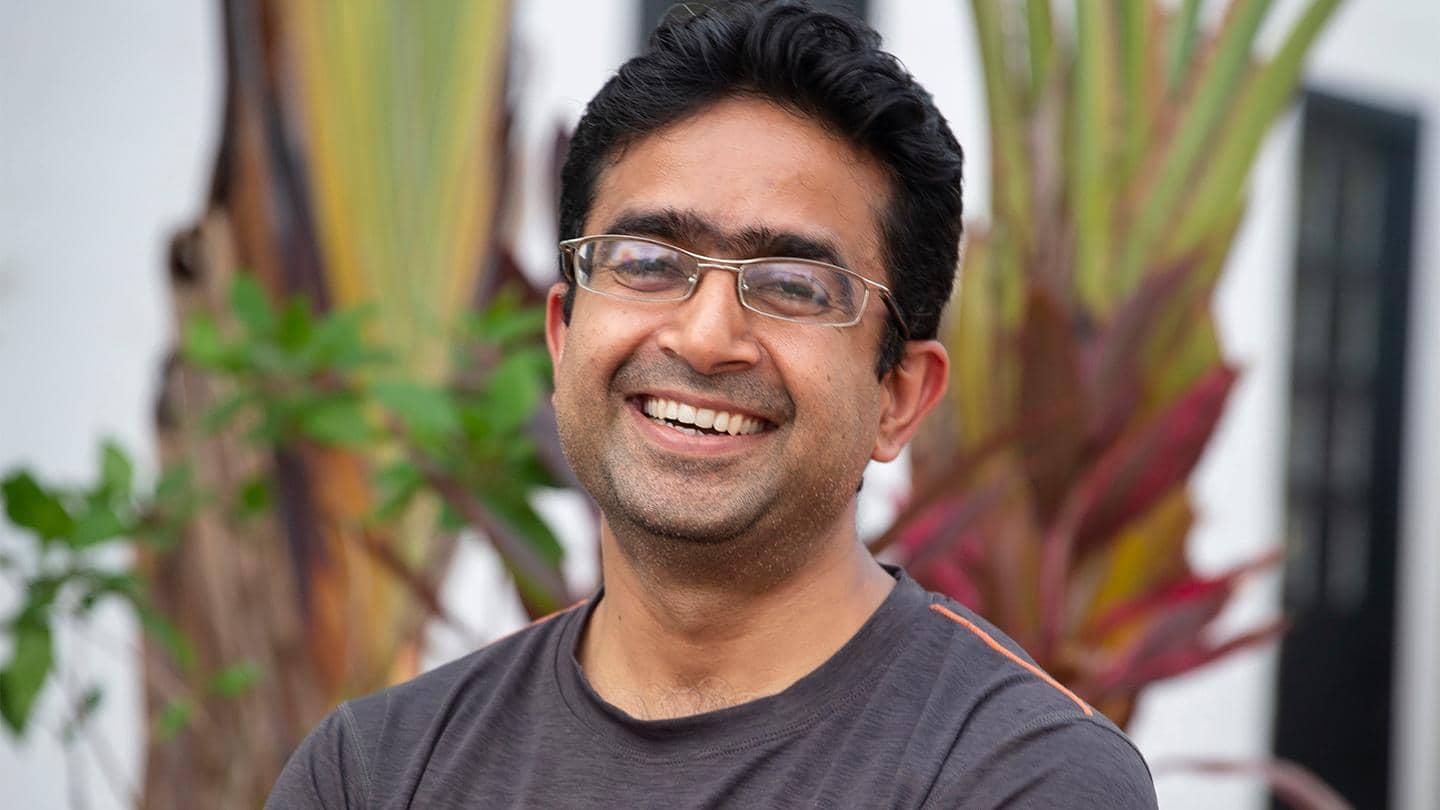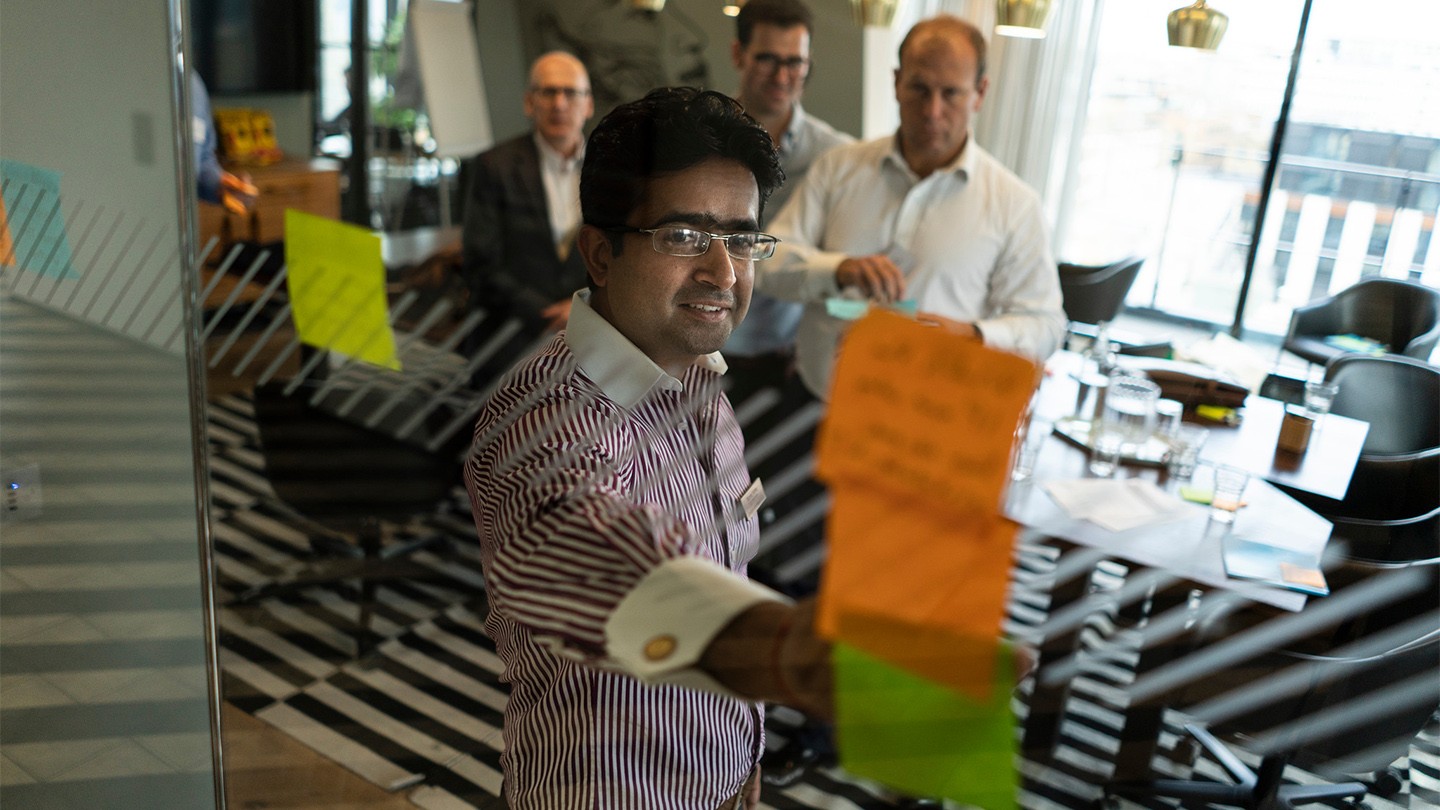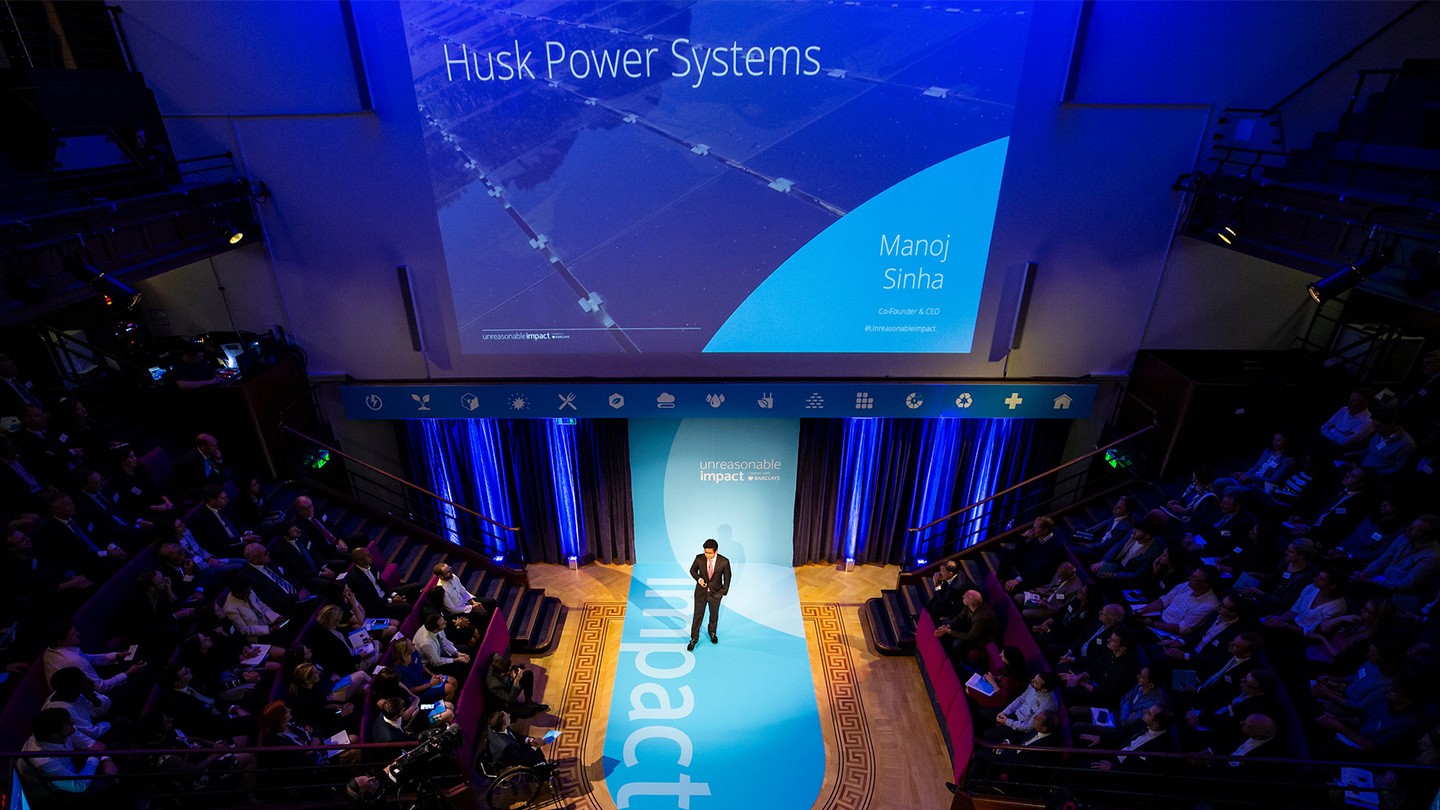
Growth
Husk Power Systems: powering rural India with energy from rice husks
Growing up, a lack of electricity in his village meant Manoj Sinha had to study for his school exams by candlelight. More than 20 years on, his company Husk Power Systems is helping to power those same villages in India through sustainable energy created from rice husks. In the latest in our series profiling graduates of the Unreasonable Impact programme, he tells us about his company’s beginnings – and the moment he realised it was his “duty” to make a change.
“During harvest season the people in my village would pray for electricity, it really was that bad.”
For Manoj Sinha, CEO and Co-Founder of sustainable energy company Husk Power Systems, pursuing a career in electrical engineering was never going to be easy.
Sinha was brought up in Bihar, East India, where approximately 70% of the state’s 110 million population have no access to electricity.
Growing up with limited access to power, Sinha counts himself as one of the lucky ones, yet he still went without luxuries that many others take for granted.
“We had access to power, but it wasn’t 24 hours a day and there were a lot of blackouts. I vividly remember having to study for exams at school under candlelight. It was difficult, but we didn’t know any better.”
It wasn’t until Sinha moved to the US to study in 2000 that he realised the significance of the barriers facing his community. It was at the University of Massachusetts, where he was studying electrical and computer engineering, that he had a ‘penny-dropping’ moment that would shape the rest of his career.
“My perspective changed dramatically the day I moved to America,” explains Sinha. “I looked at my new life of comfort in the US and imagined the kids in Bihar still living in darkness. I knew my community deserved better – and as someone from an electronics background I had no choice but to try and make that happen.”

The birth of Husk Power Systems
After graduating from the University of Massachusetts, Sinha went on to work for financial information and analytics company S&P Global for four years before starting an MBA in finance at the University of Virginia. It was while studying for his masters that his plan started to come to fruition.
“Meeting my friend Gyanesh Pandey at university was an important moment,” explains Sinha. “We’re from the same state in India, and had both moved to America to study electrical engineering. We had similar interests and experiences, and wanted to build something that would serve our community.”
It was that friendship that led to the birth of Husk Power Systems – a sustainable electrical energy provider that creates fuel from rice husks. Pandey introduced Sinha to two other potential business partners, and together the group wrote their first business plan.
Despite having ambitious plans for growth, Sinha says the co-founders wanted to work differently to their competitors – something inspired by their humble beginnings in Bihar.
“There are lots of successful energy companies in India, but all of them prioritise the big cities. That was of no interest to us – we set about building a system that would look after rural villages throughout India.”
The use of rice husks was instrumental in the founding of the company, as it allowed the business to be both eco-friendly and sustainable. “It was extremely important to us that we used ‘clean technology’” says Sinha. “It had to be environmentally friendly, we didn’t want to use coal or diesel.”
In 2008, Husk Power Systems built and installed its first ever generator in Bihar. The generator serviced approximately 300 households, providing seven hours of electricity a day between 5pm and midnight. This dramatically increased the quality of life in the area, and also gave a much needed boost to local businesses. Traders who had previously only worked in the day were now able to stay open into the evening, providing them with additional income.
“It was the success of this first generator that showed us how much potential the business had,” explains Sinha. “We raised a significant amount of capital from financial backers, and within two years we had 10,000 customers – covering 300 villages across India.”
And it wasn’t just the generators that were benefitting the rural villages either: for every power plant Husk Power Systems built they hired three local workers to maintain and manage the system, providing a source of income and security for members of the local community.

Manoj Sinha at an Unreasonable Impact event
24-hour power
Despite experiencing rapid growth, in 2014 – six years after launching the company – Sinha and his co-founders took the brave decision to rethink their business model.
“The market has changed,” explains Sinha. “In 2011 our customers were delighted with seven hours of power a day. But in 2013, they wanted 24-hour power – so we decided to scale back and repivot our business aims.”
It’s a move that is paying off, as the company has added solar power capabilities to its arsenal of sustainable technology and has saved 15,000 tonnes of CO2 emissions annually over the last five years. Within the next three years, Husk Power Systems is on track to serve over 100,000 households across both India and Tanzania – a development that will translate to almost one million customers.
Unreasonable Impact
While Husk Power Systems was in its transitional phase, Sinha was invited to join Unreasonable Impact – an international accelerator programme created by Barclays and the Unreasonable Group that helps companies tackling some of the world’s most pressing challenges to scale up.
For Husk Power Systems, the experience was invaluable. Involvement with the programme’s global network of support helped the company plan for its future – and introduced Sinha to a pool of like-minded innovators who could help them take the next step. It’s also helped Husk Power Systems to develop significantly. Since graduation, the renewable energy supplier has grown its workforce from 125 employees worldwide to approximately 200.
“It’s funny because I was actually a mentor with another Unreasonable Group programme in 2011 and 2012, but this felt like an exciting opportunity to see the benefits of an accelerator from the other side.
“It was an amazing experience. Having started a company eight years before the programme, I was surprised at how much I still had to learn. They focused on things like how to grow your staff from 100 to 1000 people – and how not to lose your company culture in the process. Barclays also gave us access to senior leaders across the bank, we were lucky enough to work with CFOs from Barclays India and a president based in Japan. They had experience in growing businesses which was invaluable for us.
“What’s really great about the programme is the unbelievable chemistry created between the participants. I am still in touch with every single founder that I worked with, and know that if I need some advice on something they are only a phone call away. That kind of bond of is rare, I don’t know how Barclays pulls it off – but they do.”